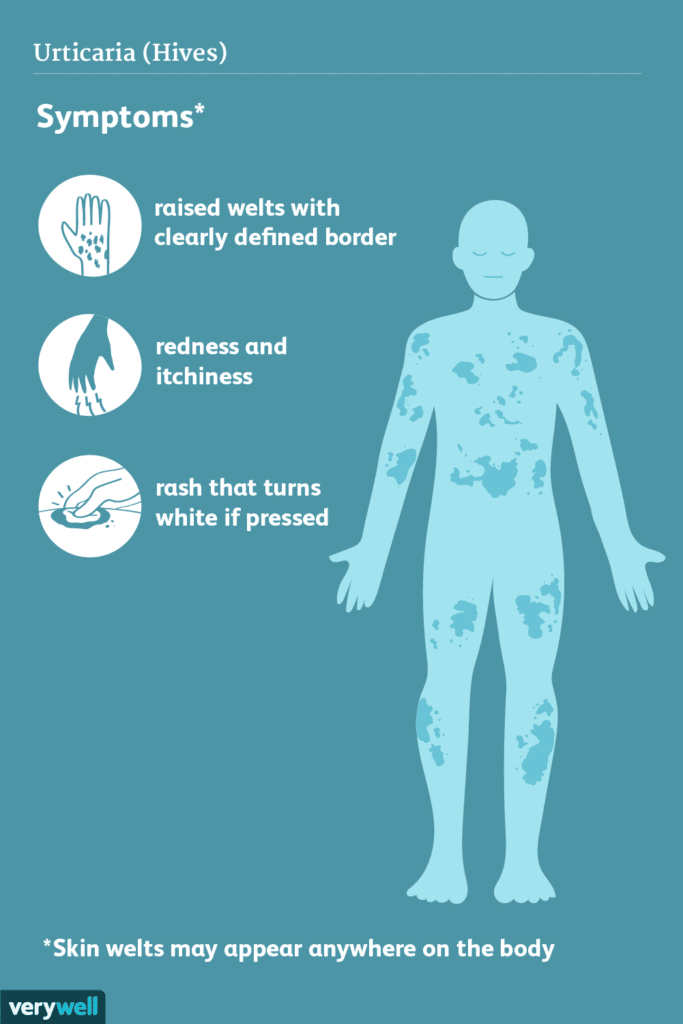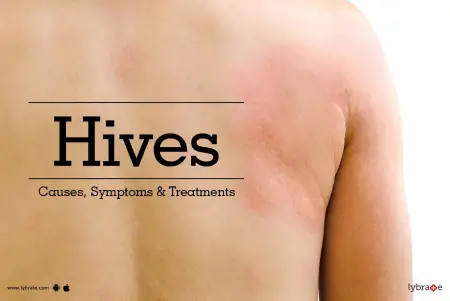Hives, also known as urticaria, are a common skin condition characterized by raised, red, itchy welts that can appear on any part of the body. These welts can vary in size and shape and can appear and disappear quickly.
They are often caused by an allergic reaction to a medication or food, but can also be caused by other factors such as stress or exposure to certain chemicals. The welts can last for a few hours or up to several days.
The exact cause of hives is not always known, but it is believed to be related to the release of histamine and other chemicals from cells in the skin. Histamine causes the blood vessels to widen, resulting in the characteristic redness and swelling of the welts. Hives can be triggered by a variety of things, including medications, foods, insect stings, and viral infections. Stress and exposure to certain chemicals can also cause hives to appear.
Symptoms of hives include raised, red, itchy welts on the skin, which can range in size from a few millimeters to several centimeters. The welts can appear anywhere on the body and can be accompanied by other symptoms such as swelling of the face, lips, tongue, or throat.

In some cases, hives can be accompanied by a fever or other symptoms of an allergic reaction, such as difficulty breathing or a drop in blood pressure.
Treatment for hives typically involves antihistamines, which can help to reduce itching and inflammation. Over-the-counter antihistamines, such as diphenhydramine (Benadryl) and loratadine (Claritin), can be effective for mild hives. In severe cases, a corticosteroid may be prescribed. Avoiding the trigger that caused the hives, if known, can also help to prevent future outbreaks.

It is important to see a doctor if you suspect you have hives, especially if you are experiencing difficulty breathing or other symptoms of an allergic reaction.
A doctor can help to determine the cause of your hives and recommend the appropriate treatment. In some cases, additional tests, such as skin or blood tests, may be necessary to determine the cause of the hives.

